Updated
Terrorism: Two Reports Weigh In After President’s State of the Union – Garth Neuffer

In his State of the Union speech to the nation, President Obama addressed ‘terrorism’ nine times. But it was the content of his remarks, not the repetition, that made the reality clear. January 28, 2014 Photo: Susan Walsh, Associated Press
.
* President Obama’s SOTU: “The fact is that danger remains.” New reports by US & IUCTS confirm rising terror threat across Africa, in Syria; IUCTS urges stemming flow of arms, recruits across borders, disbanding Polisario militia *
.

Garth D. Neuffer
Garth Neuffer, MACP
February 3, 2014
In delivering his 5th State of the Union speech last week, President Obama addressed a number of challenging realities.
On the international scene, where change continues to shake the world and offer both opportunities and obstacles to so many seeking to improve their lives, President Obama said America must continue to actively engage to “shape a future of greater security and prosperity.”

Addressing the issue of terrorism, President Obama made clear America’s “resolve that terrorists do not launch attacks against our country.”
And he acknowledged the world is still a very dangerous place.
In fact, in analyzing the speech, the Washington Post reported that President Obama referenced the issue of “terrorism” nine times, a new high for the “State of the Union” in his Presidency. But it was the content of his remarks, not the repetition, that made the reality clear.
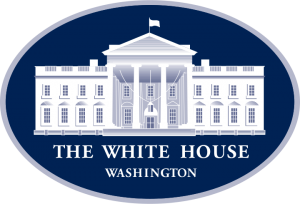 “The fact is that danger remains. While we’ve put al-Qaida’s core leadership on a path to defeat, the threat has evolved as al-Qaida affiliates and other extremists take root in different parts of the world. In Yemen, Somalia, Iraq, Mali, we have to keep working with partners to disrupt and disable these networks. In Syria, we’ll support the opposition that rejects the agenda of terrorist networks.” The President added that the US would “actively and aggressively pursue terrorist networks, through more targeted efforts and by building the capacity of our foreign partners.”
“The fact is that danger remains. While we’ve put al-Qaida’s core leadership on a path to defeat, the threat has evolved as al-Qaida affiliates and other extremists take root in different parts of the world. In Yemen, Somalia, Iraq, Mali, we have to keep working with partners to disrupt and disable these networks. In Syria, we’ll support the opposition that rejects the agenda of terrorist networks.” The President added that the US would “actively and aggressively pursue terrorist networks, through more targeted efforts and by building the capacity of our foreign partners.”
.
Two new reports underscore threat
Two new reports, from the US intelligence community and Inter-University Center for Terrorism Studies (IUCTS), underscored the President’s remarks.
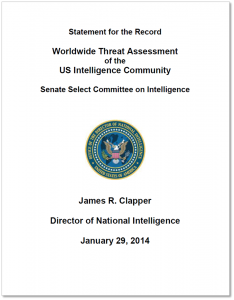 The day after the State of the Union, Director of National Intelligence James Clapper presented America’s annual “Worldwide Threat Assessment” in testimony to the Senate Select Committee on Intelligence.
The day after the State of the Union, Director of National Intelligence James Clapper presented America’s annual “Worldwide Threat Assessment” in testimony to the Senate Select Committee on Intelligence.
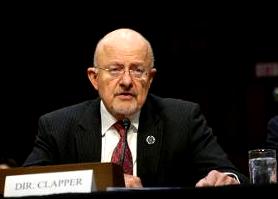 Clapper said the report showed mounting danger from jihadists aligned or inspired by Al-Qaeda, even as the group’s core leadership in Pakistan was weakened.
Clapper said the report showed mounting danger from jihadists aligned or inspired by Al-Qaeda, even as the group’s core leadership in Pakistan was weakened.
He said Syria’s civil war was acting as a “huge magnet” for terror groups, and said that Africa “has become a hothouse for the emergence of extremist and rebel groups,” particularly in the region stretching across the Sahel from Mali to Somalia.
Commenting on the President’s speech, Washington Post columnist Jennifer Rubin cited the IUCTS report, which she said shows “al-Qaeda was spreading like wildfire in North Africa.” Rubin quoted from the report’s findings on rising terrorism in the region:
“It is brutally demonstrated by the escalation in violent attacks mounted by a broad range of lawless subnational groups from Mali to Somalia and beyond.
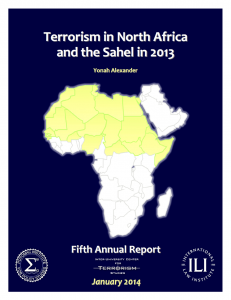 “These perpetrators, motivated by ethnic, racial, religious, tribal, and national ideologies, include an expanding array of Al-Qaida-affiliated and like-minded extremist groups and their associates, such as Al-Qaida in the Islamic Maghreb (AQIM), Boko Haram, Ansaru, Ansar Dine, Ansar Al-Sharia, the Movement for Oneness and Jihad in West Africa (MUJAO), al-Mourabitoun, the National Movement for the Liberation of Azawad (MLNA), Al-Shabaab, and militant recruits from the Polisario-run refugee camps and other displaced persons.
“These perpetrators, motivated by ethnic, racial, religious, tribal, and national ideologies, include an expanding array of Al-Qaida-affiliated and like-minded extremist groups and their associates, such as Al-Qaida in the Islamic Maghreb (AQIM), Boko Haram, Ansaru, Ansar Dine, Ansar Al-Sharia, the Movement for Oneness and Jihad in West Africa (MUJAO), al-Mourabitoun, the National Movement for the Liberation of Azawad (MLNA), Al-Shabaab, and militant recruits from the Polisario-run refugee camps and other displaced persons.
“It is of particular ominous concern to the region as well as to global interests that these political and social entities constitute formally or informally a ‘holy alliance’ of ‘like-minded’ movements as well as ‘strange bedfellows,’ operating in an ‘arc of instability’ from the Atlantic to the Red Sea and elsewhere.”
The new study, “Terrorism in North Africa and the Sahel in 2013,” is IUCTS’s fifth annual report on terrorism in the region, and was released January 24 at the National Press Club in Washington, DC.
Perhaps most disturbing was the report’s finding that terrorist attacks in North Africa and the Sahel “increased an alarming 60 percent” in 2013, the highest yearly rate over the past 12 years.
Hardest hit were Libya, Algeria, Mali, and Tunisia, in a region that has seen terrorism jump more than 600 percent in the past decade, and spread across the “arc of instability’ from the Atlantic to the Red Sea.”
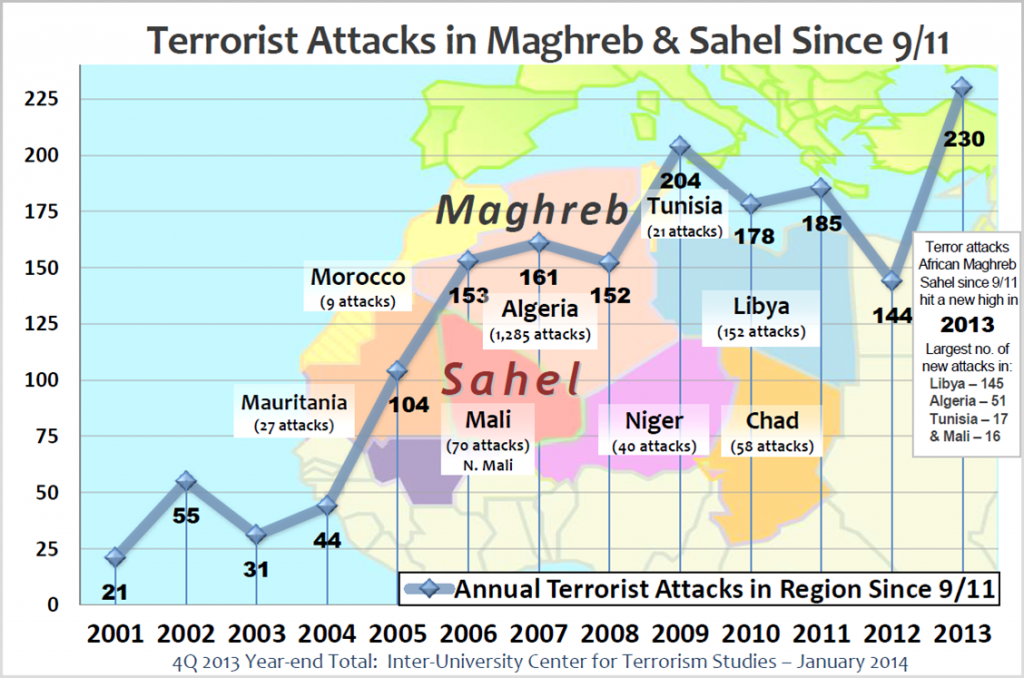
IUCTS reported that terrorist attacks in North Africa and the Sahel “increased an alarming 60 percent” in 2013. IUCTS
“The stakes are too high for America to disengage from the Maghreb and the Sahel,” said Yonah Alexander, the report’s author. “America’s vital interests in the region and those of our friends and allies are under assault by extremists and radicals who are doing us harm and want to inflict more damage.”
But rather than just sound the alarm on the seriousness of the threat, IUCTS took it a step further.
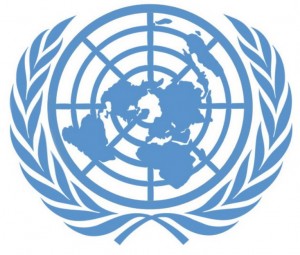 .
.
Recommendations to counter spread across “Arc of Instability”
The report provides clear recommendations on steps regional and global leaders should take to prevent what the UN Security Council last year warned is becoming “a breeding ground for extremists and a launch pad for larger-scale terrorist attacks around the world.”
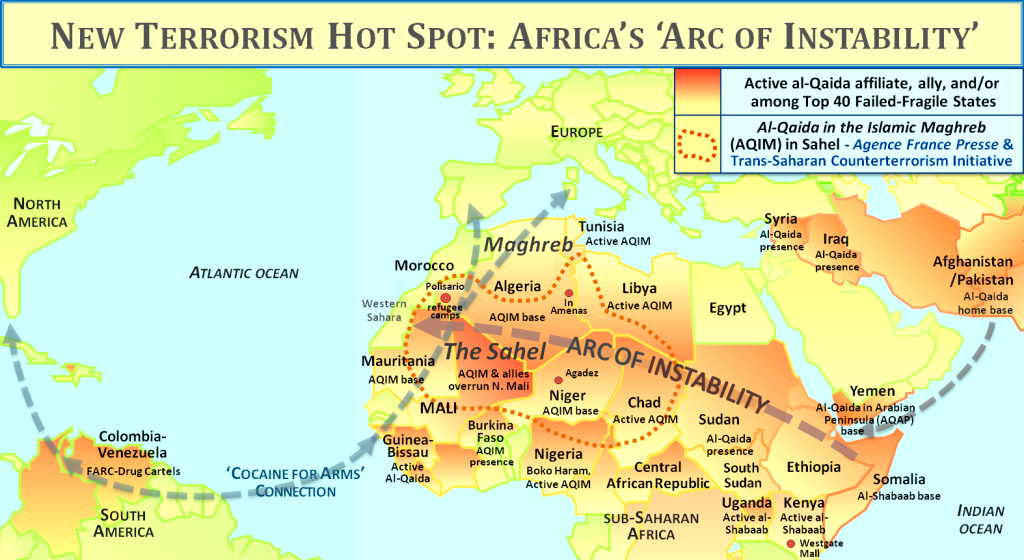
Terrorism in North Africa & the Sahel in 2013, by Yonah Alexander, Inter-University Center for Terrorism Studies (IUCTS). January 2014
The IUCTS recommendations include both “hard” and “soft power” solutions, starting with increased economic development to create more job and growth opportunities, and better alternatives for youth than falling in with the trafficking and smuggling networks that plague the region. IUCTS calls for more training and counterterrorism assistance for local law enforcement and judicial bodies, to better enforce the rule of law, with transparency and respect for human rights. The report also hails as “noteworthy” that as part of their counterterrorism strategy “both Mali and Morocco agreed in November 2013 to create religious projects to help prevent the spread of extremism.”
The report urges greater regional economic and security coordination between nations in the Maghreb and Sahel, improved intelligence sharing, and resolution of existing conflicts such as the Western Sahara dispute that impede cooperation and leave the door cracked open for terrorists and traffickers.
To stem the flow of new recruits and arms to criminal and terrorist groups across the region, IUCTS urges tighter control of national borders.
The report points out that the Polisario-controlled camps near Tindouf in Algeria, long reported to be involved in regional arms, drugs, and other illicit smuggling, “pose a threat to regional security as a recruiting ground for terrorists and traffickers.” It cites “active recruiting” by AQIM and other groups of militants and “growing danger of radicalization” in the camps, which a UN Secretary General report in April 2013 warned were a “ticking time bomb.” IUCTS recommends that “Polisario military units should be disbanded” and refugees be given the chance to leave and settle elsewhere, where they are welcome.
.
Confirmation that threat is real, time for meaningful action
Taken together, these new US and IUCTS reports provide clear confirmation that the dangers President Obama spoke of in his State of the Union address are more than just words. The threat is very real and indeed imminent. But it is a threat the US doesn’t have to face alone.
Morocco is one of the partners America can count on – and has for more than 235 years.
When King Mohammed VI met with President Obama at the White House in November, countering terrorism and promoting regional security, stability and reforms were high on the agenda in their joint statement.
Congress followed up last month, approving Foreign Military Financing as well as other expected security-related funding to help put actions behind the two leaders’ commitment to “deepen civilian and military cooperation” in non-proliferation and counter-terrorism, and bolster their efforts to turn back violent extremism.
And later this Spring, Morocco and the US will conduct their annual African Lion joint military exercises, which exemplifies the longstanding military cooperation between the two countries.
The question now is whether regional and global leaders will be able to move quickly enough, and take the steps that are necessary, to stem the tide of terrorism and extremism, and replace it with a path to progress, prosperity and peace.
Garth D. Neuffer is Director – Press at the Moroccan American Center for Policy.